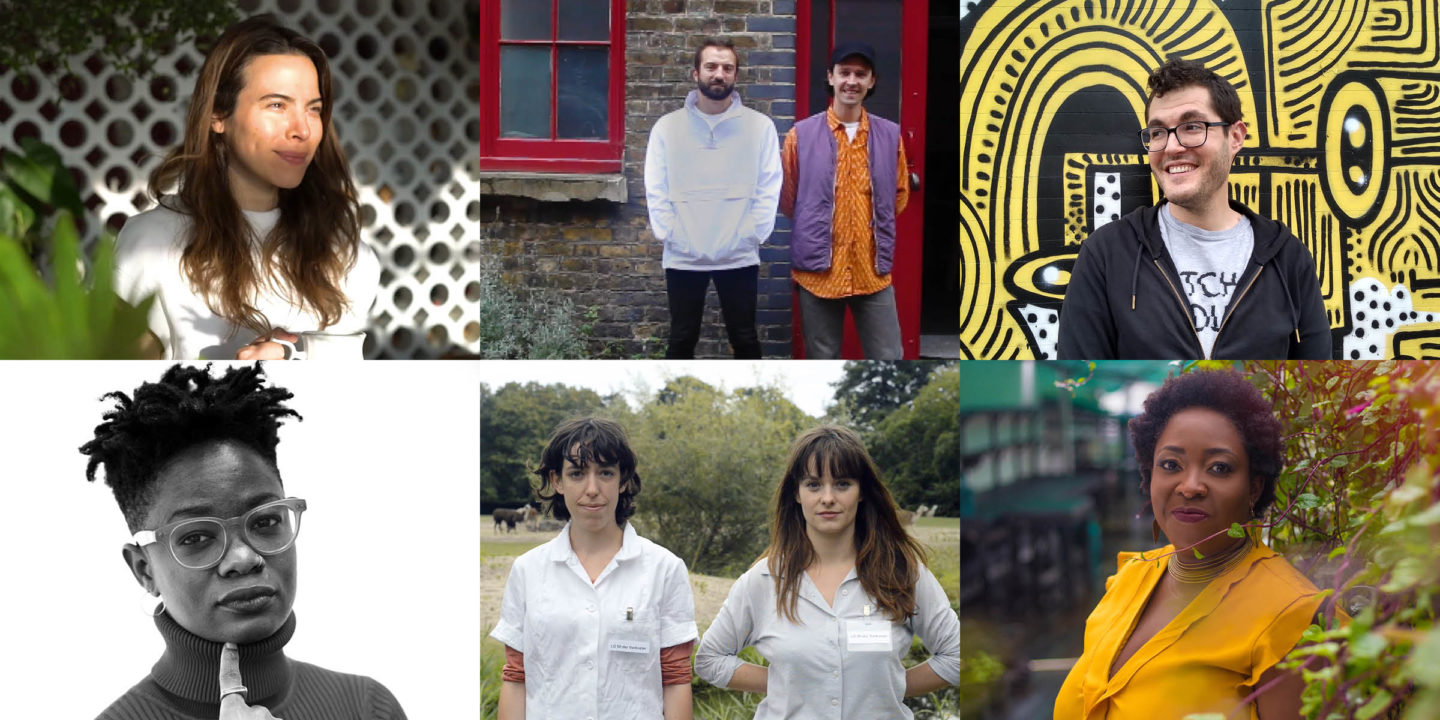The mentors and nominees in Forecast’s fifth edition worked together remotely since May, and the fruits of this extended period of mentorship for all 18 nominated projects were shared with the public in a three-day digital Forum livestreamed online October 29–31.
Each mentor has now selected one project to continue to accompany to its completion. The final six productions will be shared with the public at the Forecast Festival in April 2021, at radialsystem in Berlin.
Forecast’s artistic director Freo Majer said: "In this year’s Forecast Forum, the participants, along with their mentors, tackled the challenge of how to transform elaborate and rich proposals—which were supposed to be presented in a physical form, using space, immersive sound, and the interaction with an audience—into something that fits into a digital display. It was impressive to witness how these incredible nominees neither downsized nor simplified their work, but actually used the disruption of the current pandemic to reflect on their work afresh. The outcome of this six-month-long process tells us a lot about their resilience, unshakable inventiveness and energy, and the social relevance of what they have to say."
[caption id="attachment_8765" align="alignnone" width="1440"] Forecast Mentees Edition 5[/caption]
Forecast Mentees Edition 5[/caption]
Cooking for Change
Chef Manu Buffara will mentor Venezuelan artist Andrea Nones-Kobiakov, whose project Whatever That Ground May Be reflects on displacement and comfort through the materiality of food and ingredients. Buffara says, "I believe that food, and our relationship to it, can change the world. I believe that we need to understand the processes that go into growing and producing food, and connect again with the land. We need to cook again—and be happy to do that. It has been a pleasure to get to know all three nominees and see a future generation that shares these same values. Andrea’s project in particular embodies many of these things. Originally from Venezuela, and having moved around a lot as a child, Andrea is now based in Mexico. She looks at recipes and ingredients that connect her with her family heritage and trigger memories through the sense of smell and taste. She then grows whatever elements of the recipes she can successfully cultivate in her rooftop garden, and reinterprets the recipes in a way that captures the flavors of her childhood."
Curating as Unearthing
Curator and museum director Koyo Kouoh will accompany Nigerian food explorer Ozoz Sokoh as she continues to unearth the legacy of West African culinary excellence from the fifteenth century through the transatlantic slave trade in her project Coast to Coast: From West Africa to the World. Kouoh says, "As a primal artistic expression, the narratives of culinary practices continue to be undervalued and tokenized in the context of contemporary art. I select Ozoz Sokoh as she continues to dig and connect culinary histories of the Black experience in the framework of her long-term, expansive research, for the bold and fresh ways in which it advances the knowledge of and recognition for a culturally defining legacy that has been invisibilized for the longest time. Yet its story is at the root of modern culinary practices, food ways, and politics of taste that pretty much shape Black identity on both sides of the Atlantic."
Dissecting Technocapitalism
Writer and researcher Evgeny Morozov has chosen to work with PostRational on their research project around Cyber-Waste, a neologism that describes both eWaste, the physical refuse of dead or redundant electronic goods; and digital detritus, the materiality of digital infrastructure and the digital economy. Morozov says, "At a time when the pandemic has revealed just how vulnerable we are and how misguidedly we have gone about setting our priorities, Dan Gavshon-Kirkbride and James Pockson, through PostRational, have trailblazed a unique approach to an issue that is long overdue for both theorizing and taking on empirically: cyber-waste. They have shown both enviable analytical rigor and flexibility in approaching this challenging issue. Their work promises to put this extremely important but still mostly invisible subject at the center of our intellectual and policy agenda."
